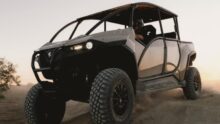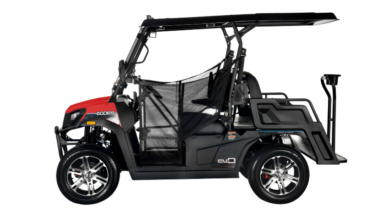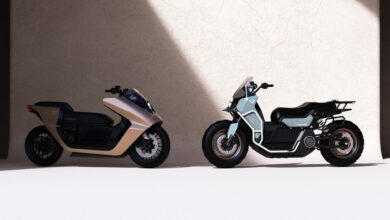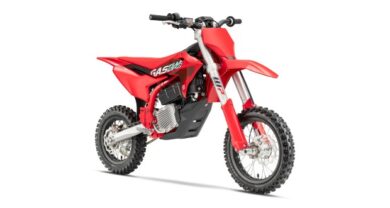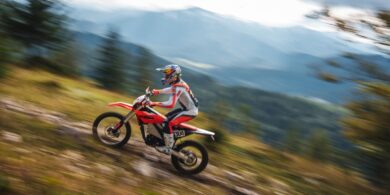Taiga Motors streamlines business model, continues to satisfy dealer partners
Taiga Motors is a Quebec-based company that manufactures fully electric PWCs and snowmobiles available across North America. Co-founders Samuel Bruneau, Gabriel Bernatchez and Paul Achard launched the company in 2015 with a mission to accelerate electrification in the off-road market.
“We saw a lot of electrification happening on-road back in the day when Tesla was just starting to succeed, but not much happening off-road,” says Samuel Bruneau, CEO and co-founder of Taiga Motors. “We grew up in Quebec, pretty close to snowmobiles and powersport vehicles, so it was something that was close to our heart.”
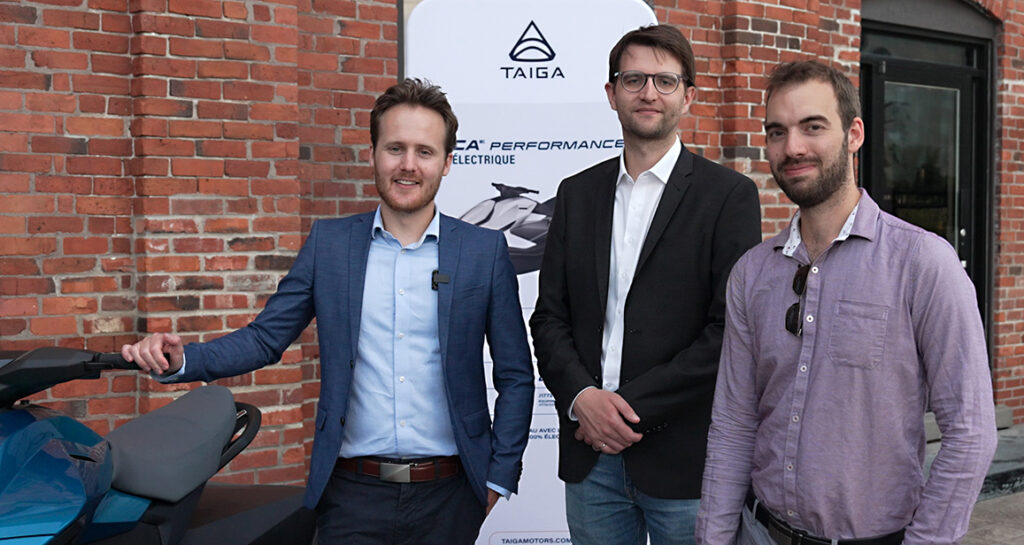
Taiga’s co-founders met in college and worked together on engineering projects. They got familiar with EV technology and recognized an opportunity to develop snowmobiles, watercraft and off-road vehicles that could provide the range and performance that customers want at a price point and lifecycle cost that would be lower than gas.
While the company offers innovative tech, Bruneau shares that it also utilizes an innovative business model. “That’s where we saw the opportunity with distribution to break away from the legacy way things are done and build a model that could be more efficient, better for the dealers and better for us as a manufacturer,” he says.
He explains that the business model is more direct than what most powersports manufacturers use and that Taiga is creating a new electric market space by establishing strong dealer partners without burdening them with financial constraints.
Dealers that partner with Taiga are known as Taiga Service Providers (TSPs). After a customer orders a unit through Taiga, a TSP completes a final inspection of the unit, ensures the unit is delivered and later acts as a local touchpoint in terms of service and parts and accessory sales.
Business model improvements and training
In 2021, Grégoire Sport of Quebec was the first Canadian dealership to take on the Taiga Nomad snowmobile and Taiga Orca PWC lines.
“We wanted to be a partner in the electric vehicle industry because we know that the future is there,” says Steffanie Grégoire, co-owner and marketing manager of the dealership. “As a TSP, we don’t have much risk and there’s low cost because we don’t carry vehicle inventory as we usually do with our other suppliers and manufacturers.
“At first, the dealership simply ensured the delivery of Taiga units. Now, we’ve been improving with Taiga to figure out the best way to do business,” she continues. “We now have some units on the floor. We don’t have flooring [costs], but our customers can see the vehicle in the store. At first, it was all online, so that changed in the last few weeks.” Customers can also finance through the dealership.
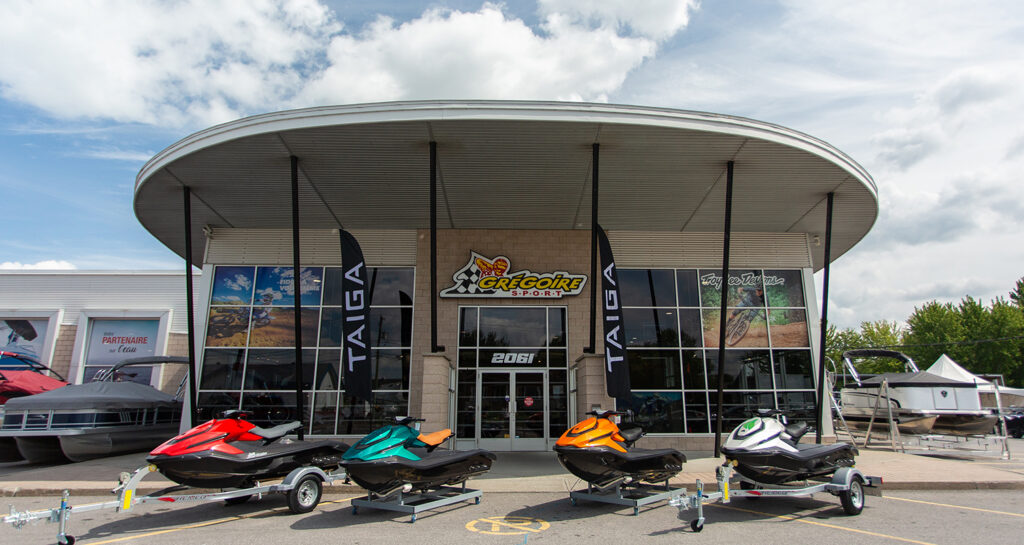
At the beginning of the partnership, Grégoire says it was challenging for both the dealership and the customer to wait for products to come in. Now, the company has increased production of the Nomad and Orca lines.
“Last year, we made deliveries of some snowmobiles in May,” she says, “but this year, they want to improve and start delivering snowmobiles in November. So that’s big.”
The company is also focused on training dealership staff about its products. “It’s new to us, so there’s a lot of questions,” Grégoire says. “They took the time to come to our store so our staff is informed and ready to answer questions from the customer.”
She shares that after the dealership communicated its need for more training and units on the floor, Taiga quickly responded to both requests.
“We’ve fine-tuned the model over the past year working with many of our dealers,” Bruneau says. “We’re trying to be very collaborative as we build this new model. How can we make it best for dealers and best for Taiga? The model is still evolving, it’s not fixed, and I think that’s what makes it interesting. We want to make the best win-win model working with these dealers.”
Centre Powersports & Marine of Minnesota started carrying Taiga in August. Eric Peterson, president and owner of the dealership, shares that the biggest adjustment for the dealership has been working with a manufacturer as responsive as Taiga.
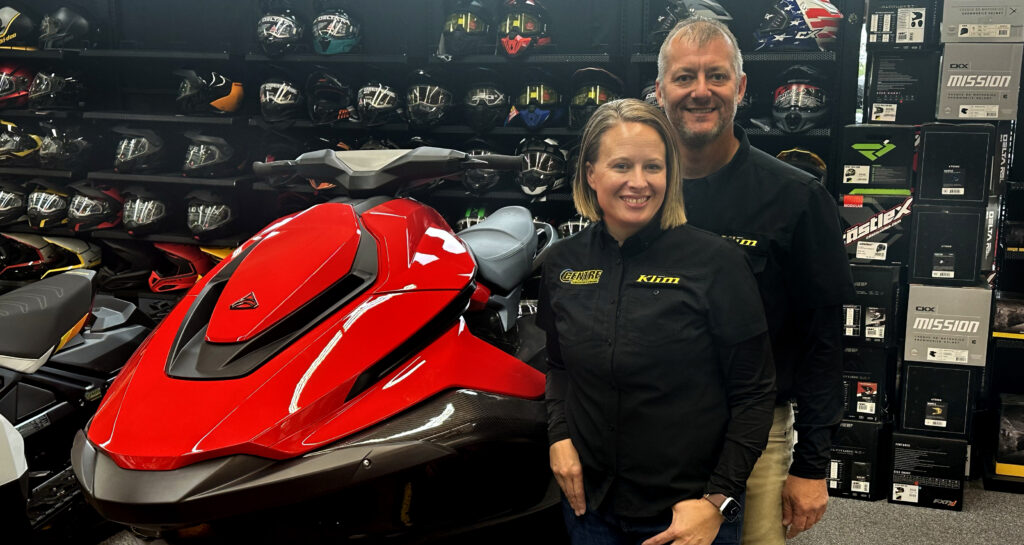
“As awesome as Taiga has been, I think if I called Thomas and said, ‘hey, we could really use some help with this,’ he would fit it into his travels to be there and work with us on it,” he says about the company. “We have someone coming from Taiga in a couple of weeks to help us with a unit – they’ve just been so overwhelmingly supportive of everything. They would do a Zoom or a Teams meeting to make it work to help us get what we need. That part is awesome.”
Recognizing opportunity and educating the industry
Both Grégoire and Peterson are excited to see new customers within the industry and the opportunities the electric product will bring. “If they buy a watercraft or a snowmobile, we can sell them a trailer,” says Grégoire. “We can also gear them up with helmets and jackets and pants.”
Some Taiga customers have also purchased an e-bike from Grégoire Sport of Quebec. Grégoire shares that she has not experienced pushback from employees or customers, but the industry needs to be educated about electric products.
“Taiga brings a lot of new customers that are not used to our industry, and they don’t like gas and they don’t like maintenance,” she says. “Our customers like gas, they like the sound, they like to do oil changes; so, we have to educate them. But as you can see on the road, the number of electric vehicles has expanded over the last few years. So, it’s a work in progress and we have to educate them, but we see more and more enthusiasm talking about electric vehicles.”
Peterson agrees that the average powersports consumer needs to be educated about electric powersports products. He explains that people are typically scared of change, and this is a significant reason that customers hesitate to accept electric products.
“It’s a mindset and it’s an educational thing,” he says. “There’s nothing wrong with the product. The problem is the mindset of the consumer right now. Today, electric is not for everybody, but it’s just going to keep growing and the more people see this, the more people are going to realize that it does work for them.”
He mentions the worry that customers have voiced about the combination of electricity and water and explains that a series of checks are required for dock charging stations to ensure safety. Not to mention, electricity is often run to docks already. “This isn’t new technology,” he says. “Look at all of the cars that are doing it. The only difference is, we’re putting it in a different box.”
Who is the Taiga customer?
Both dealers share that Taiga products attract an older demographic. “The older generation, like my father-in-law who is 75, thinks this is the coolest thing in the world because it’s low maintenance,” Peterson says. “We were talking about the snowmobile for him. He likes to ice fish and he has bad shoulders. He can drive it in the garage and plug it in. Tomorrow when he wants to go, he unplugs it, backs out of the garage and can go ice fishing. He doesn’t have to lift a gas can or drive it to town and fill it up with gas. He can just go and when the season ends, he doesn’t have to worry about bringing it into the shop. It’s so simple.”
Peterson foresees demographics across the board showing interest in Taiga products. “The younger generation is going to love this zero to 60 in three seconds. That’s incredible,” he continues. “It’s just something totally new. There’s a new group of customers that are attracted to the dealership.”
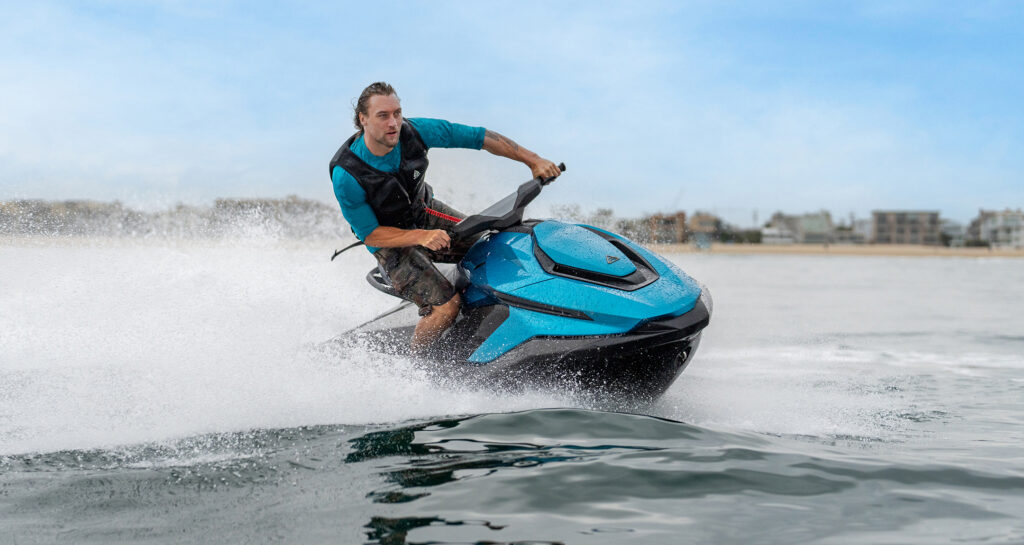
He shares that there is a segment of potential buyers who own electric cars and are now interested in electric powersports offerings. “I think we’re going to see a whole new group of customers that hasn’t been going to a powersports dealership,” he says.
Battery life of the Orca and Nomad
Peterson has been asked about the Orca’s two-hour battery life. His response is, “How many hours do most people go out to ride at a time? It’s about 30 minutes,” he says. Responding to someone questioning the PWC’s battery life, he asks how many hours were on his personal watercraft. “The guy said 18 and the unit was two years old. That’s nine hours a year. So, two hours in a day is more than enough for many riders,” he shares.
Grégoire discusses the battery life issue. “For the typical customer, the problem is the range of the battery,” she says referring to the Taiga Nomad. “But most Taiga customers are people who are doing work on their land, so you don’t need to have as much range. For the trail system, a snowmobiler likes to ride a lot of kilometers in a ride, so we’re not there yet but it’s a work in progress,” she says.
Maintaining dealer support and ramping up production
Bruneau shares that the company’s team is continuing to grow so it can maintain its responsiveness to dealers. The company provides dealer support through its regional managers, who serve as touchpoints with dealers, and by offering service teams dedicated to training dealers and helping service units.
“I think we have 31 locations now across North America,” he says. “As we keep expanding that, we’re expanding our internal team as well to offer the same level of support to our dealers in the different regions.”
The company has also increased Nomad and Orca production. The company’s production rate is just over 50 units a week, according to Bruneau. “That was a big step forward for us,” he says. “And for 2023, the total volume between snow and watercraft, we’re aiming at just above 1000 vehicles. We really just ramped up in the second half of 2023, so we’re really seeing the benefits from that. We’re going to carry forward with much higher numbers in 2024.”
Taiga recently entered into a loan agreement with Export Development Canada (EDC) to support the company’s continued growth. “This loan really helps us on the working capital side,” Bruneau says. “I think this goes in with our direct model. It’s a bit more intensive on requirements for Taiga as an OEM at the beginning because we’re holding some of those initial inventories and buffering it with sales with the dealers instead of just pushing out inventory onto dealers and getting them to buy upfront.
“I think that’s really appreciated by our dealer groups because they’re carrying some pretty significant inventories of other products, especially at the moment,” he continues. “So, now we’re working directly with different banks to provide those financing tools and that’s allowing us to keep increasing production.”
Taiga recently reached a production milestone of 1,000 vehicles for 2023, and Bruneau explains that the company will be in rapid scaling mode over the next 12 months. “We’re excited to continue to expand over different regions in Canada and the U.S. and work with new dealers,” he says. And he shares that side-by-sides are an attractive segment to the company. “The next step for us is working on an electric side-by-side. We have some stuff in the works. We haven’t unveiled the exact timeline on it yet, but that will be the next product lineup for Taiga.”


